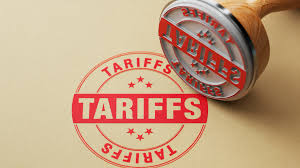Adegboyega Oyetola, Nigeria’s Minister of Marine and Blue Economy, has instructed the Nigerian Maritime Administration and Safety Agency (NIMASA) to initiate procedures aimed at finally disbursing the long-awaited Cabotage Vessel Financing Fund (CVFF).
This signals a decisive break from two decades of dormancy in Nigeria’s domestic maritime sector, paving the way for renewed efforts to revive local shipping capabilities.
The CVFF, established under the Coastal and Inland Shipping (Cabotage) Act of 2003, was designed to empower Nigerian shipping companies through access to structured financing for vessel acquisition. However, successive administrations failed to operationalize the fund—until now.
Under the visionary leadership of President Bola Tinubu and the determined stewardship of Oyetola, the federal government has signaled a deliberate course correction. The disbursement of the CVFF will represent not just the release of funds but a profound commitment to empowering Nigerian maritime operators, bolstering national competitiveness, and fostering sustainable economic development.
“This is not just about disbursing funds. It’s about rewriting a chapter in our maritime history,” Oyetola said.“For over 20 years, the CVFF remained a dormant promise. Today, we are bringing it to life—deliberately, transparently, and strategically,” he stated.
NIMASA, in alignment with the minister’s directive, has already issued a Marine Notice inviting eligible Nigerian shipping companies to apply. Qualified applicants can access up to $25 million each at competitive interest rates to acquire vessels that meet international safety and performance standards. The fund will be administered in partnership with carefully selected and approved Primary Lending Institutions (PLIs), ensuring professional and efficient disbursement.
“We are not merely funding vessels; we are investing in a future where Nigerian shipping companies can stand shoulder-to-shoulder with their international counterparts,” Oyetola added. “This is a turning point—one that affirms our commitment to local content, economic resilience, and maritime sovereignty.”
The disbursement of the CVFF is anticipated to yield far-reaching benefits. It will enable the growth of a stronger, self-sufficient shipping fleet, generate employment opportunities, stimulate local shipbuilding and repair industries, and significantly reduce capital flight associated with foreign vessel chartering.
Industry stakeholders have hailed the move as a “watershed moment” for Nigerian maritime development. Experts believe that with proper implementation, the CVFF will help realign the industry toward long-term growth, enhanced logistics efficiency, and global relevance.
“We are doing what should have been done years ago—because our vision is clear,” said Oyetola. “A strong indigenous fleet is not just a matter of pride; it is a strategic national asset. Through this intervention, we will be securing jobs, strengthening our economy, and redefining our place in the global maritime economy,” he added.
This decisive action by the Tinubu administration and the Ministry of Marine and Blue Economy represents a historic milestone, reaffirming Nigeria’s readiness to take its rightful place on the global maritime stage—powered by indigenous capacity, guided by clear policy, and sustained by unwavering political will.
ALSO READ TOP STORIES FROM VERILY NEWS












